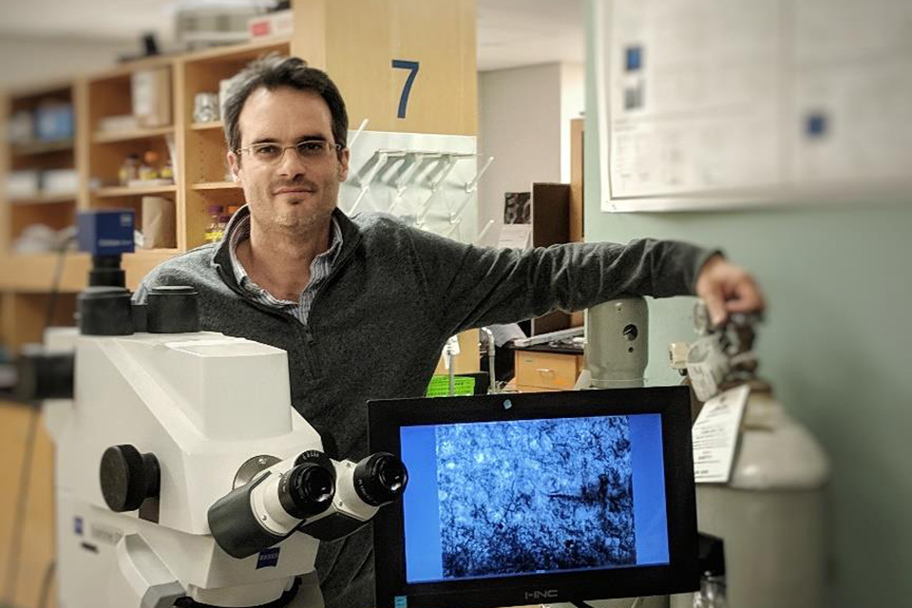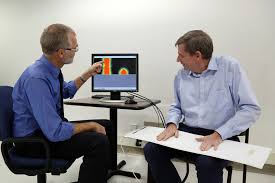In 2016, the leading memory and cognition researchers in Ottawa including from The Bruyère Research Institute formed the uOBMRI-Memory and Cognition Group (MCG) to systematically research the underlying mechanisms of the cognitive decline, unravel memory loss processes, discover innovative ways to stop and heal cognitive decline and improve delivery of care at our partnering hospitals. Alongside the basic scientists that examine the fundamentals of memory and cognitive processing, the mechanisms of degeneration, stress and cognitive decline, neural dynamics and circuitry in memory and cognition; the MCG also includes critical mass of clinical researchers focusing on drug trials in dementia geriatric, psychiatry geriatrics, and primary care for dementia-related prevention and care. The latter is particularly important since it would positively impact outcome and quality of life of each patient while driving down the hefty price tag dementia, and especially Alzheimer’s, inflict on Canadian society and economy.
Memory and cognition
In 2016, the leading memory and cognition researchers in Ottawa including from The Bruyère Research Institute formed the uOBMRI-Memory and Cognition Group (MCG) to systematically research the underlying mechanisms of the cognitive decline, unravel memory loss processes, discover innovative ways to stop and heal cognitive decline and improve delivery of care at our partnering hospitals.

uOBMRI-Memory and Cognition Group (MCG)
Research themes
The uOBMRI-MCG is focused on the following themes:
Understanding the fundamentals of memory and cognition: The first priority of the uOBMRI-MCG group is to elucidate the memory and cognition processes as it relates to both development and normal adult function. The analyses of these processes will span from studies at circuit levels involved in memory to those exploring behavioural outputs (particularly in humans) as it relates to memory and cognitive processing. The uOBMRI have great strengths in these fields and few exciting examples include:
Prevention/treatment: The uOBMRI-MCG aims to prevent cognitive decline among at-risk population and find a treatment that will restore cognitive capacity in cases where prevention measures were not applicable.
Clinical Care Delivery: Given the expected rise in incidents of cognitive disorders, the existing health care model catering for this patient population is likely unsustainable. Thus, the Clinical Care Delivery theme will focus on establishing more effective and efficient health care models to maximize quality of care to an increasing number of patients who need it. These efforts require the clinical care delivery system:
Identify and maximize the utilization of ALL available clinical care resources, in the community and health care system
Develop the available resources into a cohesive sustainable clinical care delivery model
These are just a few examples of research supported by the uOBMRI and your donations: From determining how memories are made to using technology to reduce patient and caregiver fatigue, these researchers are making an impact on how we perceive and care for Alzheimer’s.
Examples of research supported by the uOBMRI
Dr. Jean-Claude Béïque and his collaborators, Drs. Len Maler, Andre Longtin and Stephen Ferguson are working to understand how our brains work to create and store memories. They are using cutting edge behavioural, mathematic, optic and analytical techniques to determine which brain networks are involved in recognizing patterns, which will guide future therapies for dementia and cognitive impairment.

Dr. Nafissa Ismail runs the NeuroImmunology, Stress, and Endocrinology (NISE) Laboratory, which investigates the impact of early-life stress and neuroinflammation on brain performance later in life. She has found that being exposed to a bodily stress, for example an infection, during puberty, can permanently alter the part of our brain controlling memory function. Dr. Ismail’s research has the power to inform and guide preventative therapies for cognitive impairment.

Dr. Frank Knoefel is developing technology can be used to ease the stress on patients with dementia and their caregivers. In an effort to reduce caregiver concern, Dr. Knoefel and his collaborators have created “Wandering Patient Detection and Diversion Kit” which uses motion and pressure sensors along with automatic lights and voice warnings to guide the patients and monitor their location. In the clinic, Dr. Knoefel is using tablet technology to reduce the stress that patients experience during initial assessment and subsequent follow-ups.

Our Members in Action

Dr. Richard Naud's publication provides new insights into theories of learning, working memory, and AI
